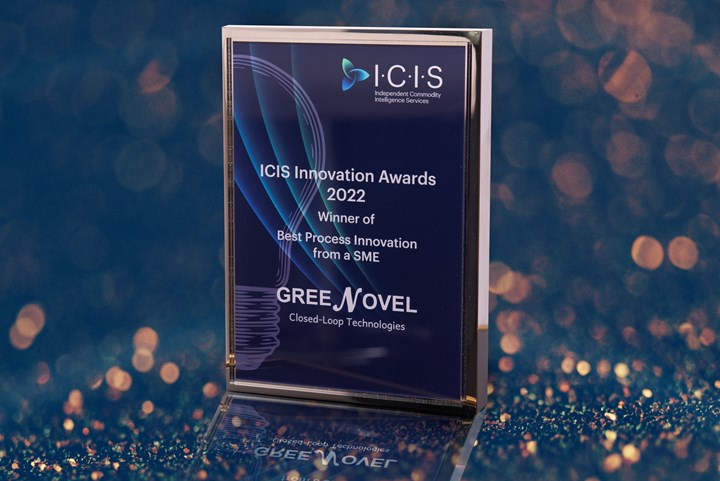Pilot Program Will Recycle Contaminated Materials
GreeNovel announced commercialization of technology to remove chemicals of concern.
GreeNovel, a Canadian company based in Quebec, has announced it’s commercialized its process for recycling nontraditional low- or negative-value contaminated resources which the company describes as economically and environmentally viable. The company won a 2022 ICIS award for the “Best Process Innovation from a SME".

GreeNovel was recognized by ICIS for Best Process Innovation from an SME.
Photo: GreeNovel
GreeNovel's invention relies on the interactions between a developed agent and more than 150 contaminants of concern. A novel microwave unit processes E-waste that has been pre-treated, and the reacted agent is completely regenerated. The design of the microwave unit improves microwave energy dissipation efficiency and, consequently, reduces energy consumption compared to the existing state-of-the-art. The solid product contains precious metals and is processed using GreeNovel's proprietary process to produce high-purity metals. The liquid product is utilized in producing various chemical compounds that can be used to make new plastics.
Funding for development of the technology was provided by the Canadian government through its Plastics Challenge: E-waste contract, awarded by Innovative Solutions Canada. The phase 2 contract will support scaling up the technology.
According to GreeNovel, the commercialization paves the way for applying the same concept to gas purification downstream of industrial processes.
Related Content
-
NPE2024 Wrap-Up: Sustainability Dominates Show Floor News
Across all process types, sustainability was a big theme at NPE2024. But there was plenty to see in automation and artificial intelligence as well.
-
The Importance of Mass Balance in Chemical Recycling
Approaches to mass balance can dramatically impact calculations of recycled content.
-
Extrusion Technology Extended to Injection, Enabling Up to 100% Regrind Usage
Twin-barrel (shot-pot) press can handle more regrind, offers other benefits to molders.













